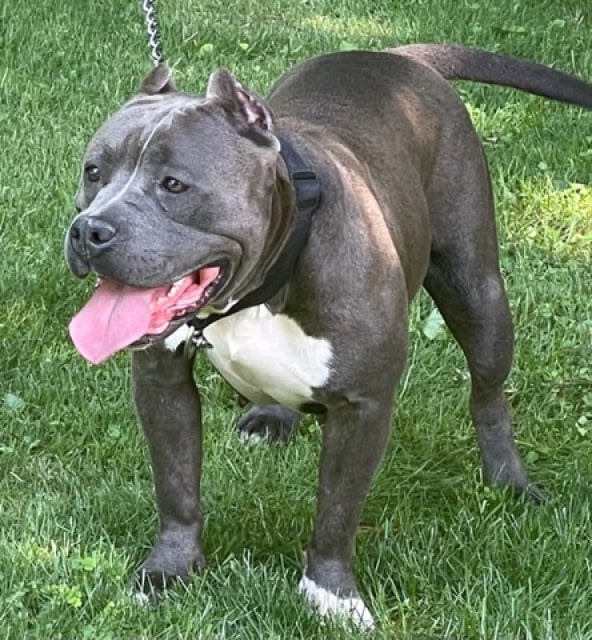

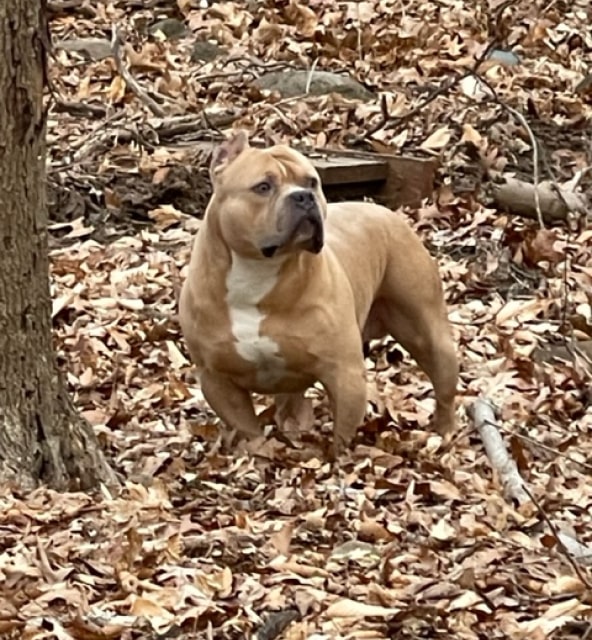

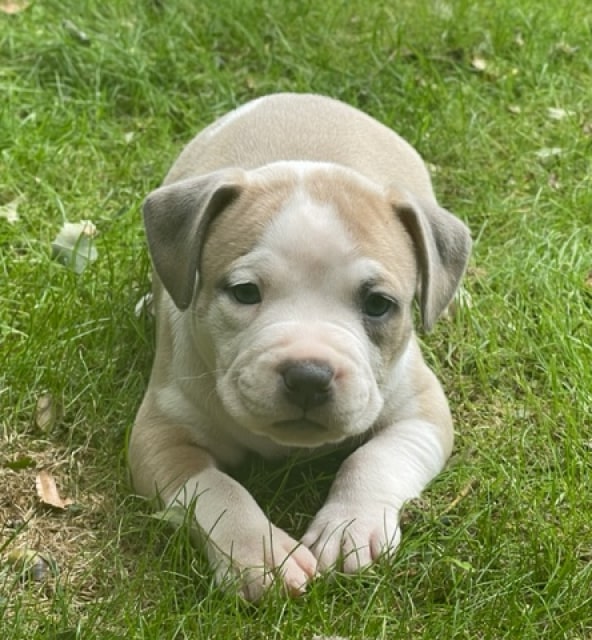





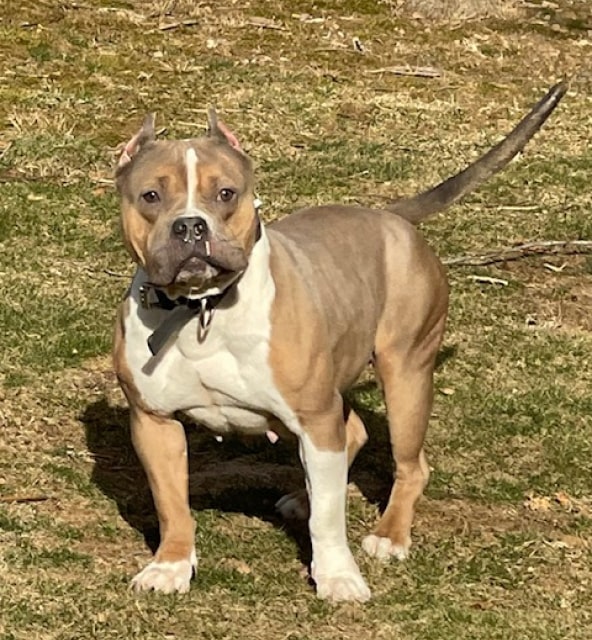

The Social Butterfly: Socializing Your American Bully for a Well-Balanced Life
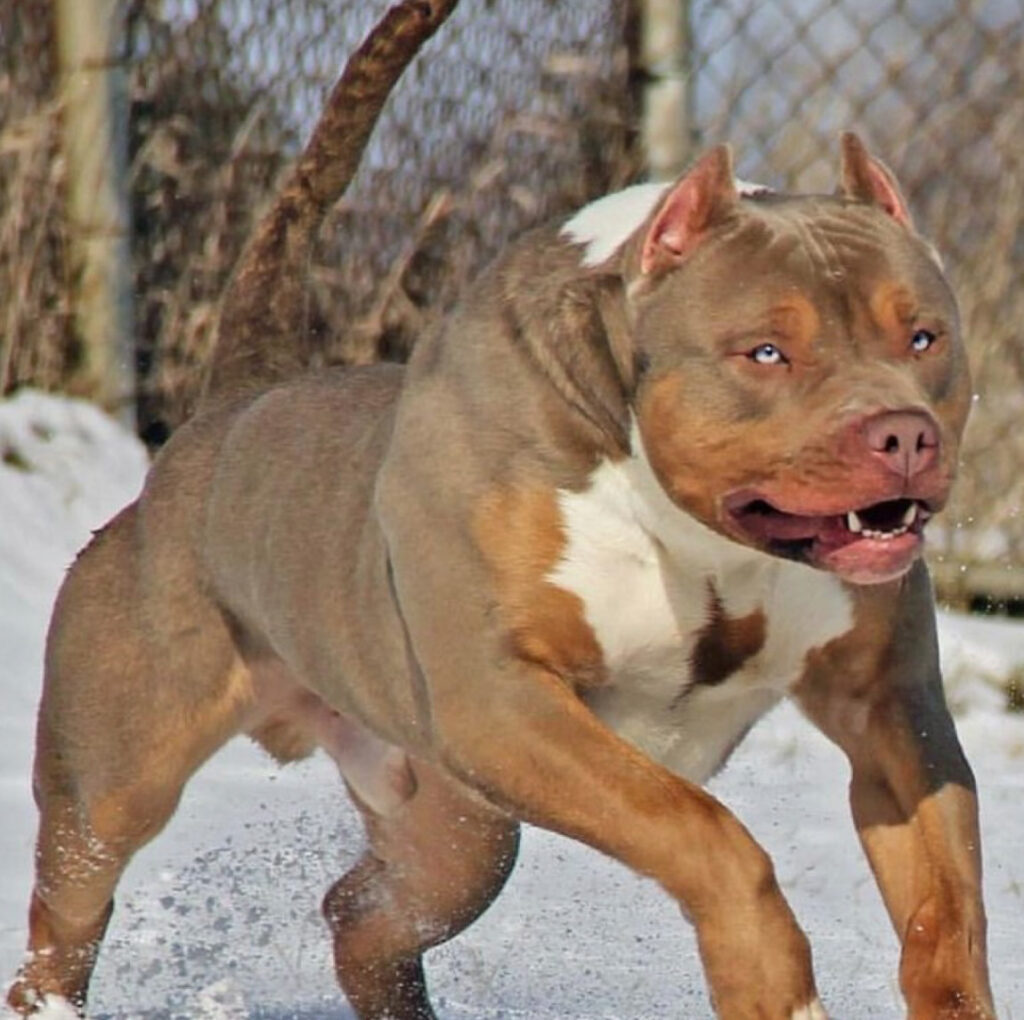

One of the most essential aspects of raising a well-rounded and happy American Bully is ensuring they are socialized from a young age. Socialization plays a vital role in helping your dog develop into a confident, friendly, and well-behaved pet. This blog will delve into the importance of socialization for American Bullies, offering specific examples, best practices, and proven results. Additionally, we will discuss the ideal age ranges for various socialization activities to ensure your American Bully develops into a well-adjusted canine citizen.
The Importance of Socializing American Bullies
American Bullies, like any other breed, need to be exposed to various situations, people, and other animals to become confident and well-adjusted pets. Without proper socialization, dogs can develop behavioral issues such as fear, aggression, or anxiety. These issues can lead to a challenging life for both the dog and its owner. Socialization is particularly crucial for American Bullies due to their muscular build and strong appearance, which may cause people to feel intimidated. By socializing your American Bully, you can help break the stereotypes surrounding these dogs and show the world that they are loving, friendly, and well-behaved pets when raised correctly.
Best Practices for Socializing
American Bullies Start Early: The critical period for socialization begins when a puppy is around 3 weeks old and continues until they are 14-16 weeks old. During this time, puppies are most receptive to new experiences, making it the ideal window to introduce them to various stimuli. However, it’s never too late to start socializing an adult dog if they missed this crucial period.
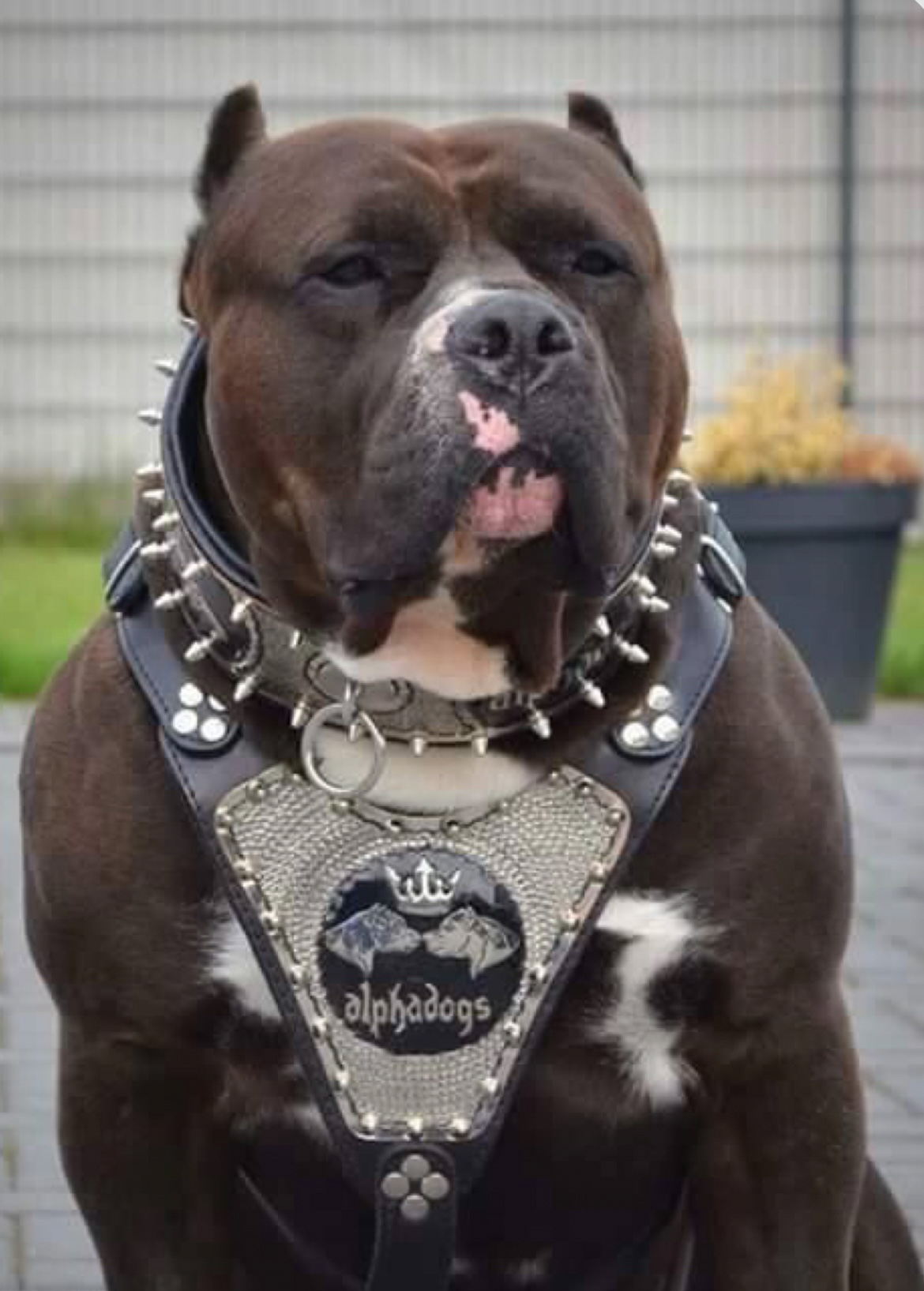

Expose Your Dog to Various Situations: To properly socialize your American Bully, expose them to a wide range of environments, people, and animals. This may include meeting people of different ages, genders, and ethnicities, as well as encountering other dogs, cats, and other small
animals. You can also expose your dog to different situations like car rides, busy streets, parks, and veterinary visits.
Use Positive Reinforcement: Always reward your American Bully with praise, treats, or toys when they show calm and friendly behavior during socialization experiences. This will help them associate new situations and people with positive experiences, making them more likely to enjoy
these encounters in the future.
Attend Puppy Socialization Classes: Puppy classes are a fantastic way to expose your American Bully to new experiences in a controlled environment. Trainers often provide guidance on how to properly socialize your puppy and correct any undesirable behaviors.
Gradual Exposure: When introducing your American Bully to new situations, do so gradually to avoid overwhelming them. For example, if your dog is nervous around strangers, start by having them observe people from a distance before gradually closing the gap as your dog becomes more comfortable.
Proven Results of Socialization
Several studies have demonstrated the benefits of early socialization for dogs. One study by the Journal of Veterinary Behavior found that puppies who attended socialization classes were less likely to exhibit undesirable behaviors like fear and aggression as they aged
Specific Examples
American Bully “Bella”: Bella’s owner started socializing her at eight weeks old by taking her on regular walks around the neighborhood, exposing her to various sights and sounds. As a result, Bella grew up to be a well-adjusted, friendly dog who enjoys meeting new people and playing with other dogs at the local dog park.
American Bully “Max”: Max was enrolled in puppy socialization classes at ten weeks old. Here, he was introduced to various experiences like being around other dogs, meeting people wearing different types of clothing (hats, sunglasses, etc.), and being exposed to different sounds (bikes, skateboards, etc.). Max’s owner consistently used positive reinforcement during these experiences, helping him develop into a confident, friendly, and well-behaved adult dog.
Specific Training Exercises for Socializing American Bullies
Novice Level Exercises
Pass the Puppy: This is a simple exercise to help your puppy get used to being handled by different people. Gather a small group of friends or family members and take turns holding, petting, and passing your puppy around. Make sure everyone treats your puppy gently and rewards them with praise or treats for remaining calm.
Meet and Greet: Take your puppy on regular walks, allowing them to meet various people and dogs (if they are vaccinated and healthy). Encourage your American Bully to approach people and other dogs in a calm and friendly manner. Reward them with treats and praise for appropriate behavior.
Intermediate Level Exercises
Controlled Off-Leash Play: Arrange play dates with other well-behaved dogs in a secure, fenced area. Supervise your American Bully closely and intervene if play becomes too rough or aggressive. Reward your dog for displaying friendly and appropriate behavior during play.
Group Training Classes: Enroll your American Bully in a group obedience class to expose them to new environments, people, and dogs while also learning valuable skills. This will help reinforce their socialization and give them a chance to practice focus and self-control around distractions.
Expert Level Exercises
Advanced Obedience or Dog Sports: Once your American Bully has mastered basic obedience, consider participating in advanced training or dog sports like agility, flyball, or rally obedience. These activities will further strengthen their socialization skills while also providing mental and physical stimulation.
Therapy Dog Training: With proper socialization and training, American Bullies can make excellent therapy dogs. Enroll your dog in a therapy dog training program, which will teach them to provide comfort and support to people in various settings, such as hospitals, nursing homes, and schools.
Socializing your American Bully is crucial for their overall well-being and happiness. By exposing your dog to various experiences, people, and animals, you can help them develop into a confident, friendly, and well-behaved pet. Start socializing your American Bully early, and use a combination of novice, intermediate, and expert-level exercises to ensure they are well-rounded and adaptable in any situation. With proper socialization and training, your American Bully will not only break stereotypes surrounding the breed but also become a cherished and valued member of your family and community




